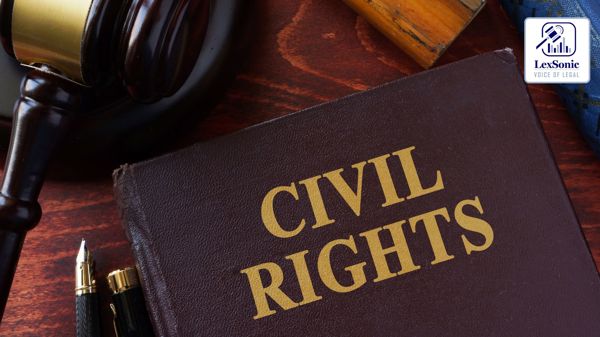Condonation of Delay in Legal Proceedings: A Case for Substantive Justice under Article 227.
27 February 2024
Civil Procedure Code Relief >> Constitution & Law Procedure
In a recent judgment of Chandrakant Dattu Mhatre & Others v/s Nandkumar Moreshwar Patil & Others, the Bombay High Court addressed the issue of delay in filing an application for the restoration of an appeal, highlighting the role of the Court's supervisory powers under Article 227 of the Constitution of India to ensure substantive justice. The case revolved around a writ petition filed by the Petitioners challenging the order dated 21st July 2015, passed by the learned Appellate Court. The Appellate Court had dismissed the Petitioners' application for condonation of a delay of 2 years and 2 months in filing an application for the restoration of an appeal.
Background of the Case:
The Petitioners, in their original suit (RCS No. 1049/1995), sought a declaration regarding a property, but the suit was dismissed on merits in 2003. The Petitioners filed an appeal (Appeal No. 134/2003), which was dismissed for want of prosecution and in default in 2011. Subsequently, they filed an application (MCA No. 28/2014) seeking restoration of the appeal, which was dismissed in 2015 due to the delay in filing the application. This dismissal became the subject matter of the present writ petition.

Legal Journey and Challenges:
The Petitioners initially sought to challenge the 2015 order through two separate proceedings: a writ petition (St) No. 12983/2016 and a second appeal (St) No. 30013/2016. However, both proceedings were withdrawn after being deemed not maintainable. It was only after these withdrawals that the Petitioners filed the present writ petition in 2022, seeking the Court's intervention for condonation of the delay in the application for restoration.
In his arguments, the Petitioners' Advocate, Mr. Upadhyay, admitted the delay of 2 years and 2 months. He argued that the Petitioners should not be penalized for the delay and that their statutory right to appeal, which was filed on time but not prosecuted, should be protected. He further explained that the delay was a result of seeking legal advice, filing incorrect proceedings, and withdrawing them once the error was realized.
Respondent's Objection:
On the other hand, the Respondents, represented by Mr. Gole, raised a preliminary objection regarding the maintainability of the writ petition. They argued that the appropriate remedy for challenging the dismissal of the condonation application was an appeal from the order, as per Order XLIII, Rule 1(1) of the Code of Civil Procedure (CPC), which deals with appeals from orders. Specifically, they pointed to the provisions under Order XLI, Rules 17 and 19, which pertain to the dismissal of an appeal for default and the procedure for its re-admission.
Mr. Gole emphasized that the Petitioners should have filed an appeal from the order under the applicable provisions, rather than a writ petition. He referred to earlier rulings from the Bombay High Court that supported this view, including the case of Chandrakant Govind Sutar vs. M.K. Associates and Maurice Cilanova Domingos Baptista Pinto Antonio Baptista Pinto (deceased) vs. Ashley Developers Pvt. Ltd. In these cases, the Court had held that the order passed on an application for condonation of delay in filing an appeal is considered as an order in the appeal itself, and thus an appeal from the order is the proper course of action.
Court's Ruling: Exercising Supervisory Jurisdiction under Article 227
The Bombay High Court, after considering the submissions of both parties, found merit in the Respondent's objection regarding the procedural route but also recognized the significant delay in the case, spanning over 12 years due to multiple proceedings. The Court emphasized that the power of superintendence under Article 227 of the Constitution is intended to do substantive justice and ensure that procedural hurdles do not prevent the litigants from having their day in court.
The Court noted that the delay in this case was due to the Petitioners being misled by incorrect legal advice, which resulted in them filing and withdrawing two separate proceedings. In light of these circumstances, the Court held that the Petitioners should not be penalized for the delay. Instead, the delay of 2 years and 2 months was condoned, recognizing the need to balance justice and fairness.
Conclusion and Directions:
In its final order, the Court quashed and set aside the judgment dated 21st July 2015 and allowed the Petitioners' application for condonation of delay. However, the Court imposed a cost of Rs. 25,000/- on the Petitioners, to be paid to the Respondents, as a compensatory measure. The Court further directed that once the costs were paid, the Trial Court should hear the application for restoration of the appeal strictly on its merits, without being influenced by previous decisions.
This case serves as a reminder that while procedural rules must be followed, courts must also exercise their supervisory powers under Article 227 of the Constitution to ensure substantive justice. The Court's willingness to condone the delay and allow the Petitioners to pursue their case reflects its commitment to upholding the right to appeal and ensuring that no party is unduly penalized due to procedural delays, particularly when such delays are caused by legal advice or misunderstandings.
The judgment underscores the importance of balancing procedural strictness with the need for justice, especially in cases where litigants are seeking to exercise a fundamental right.
